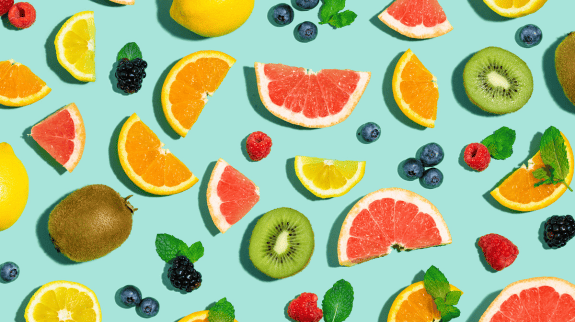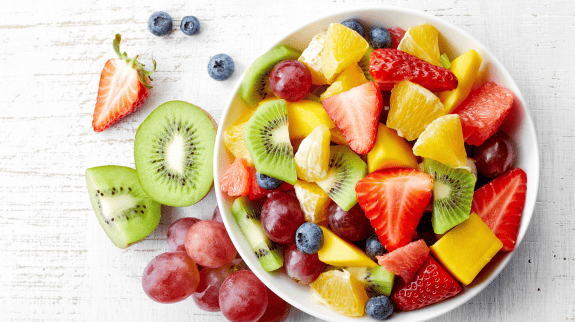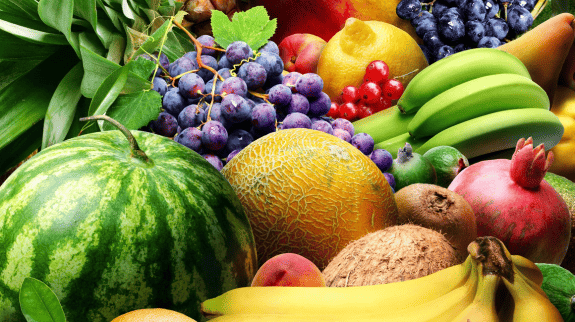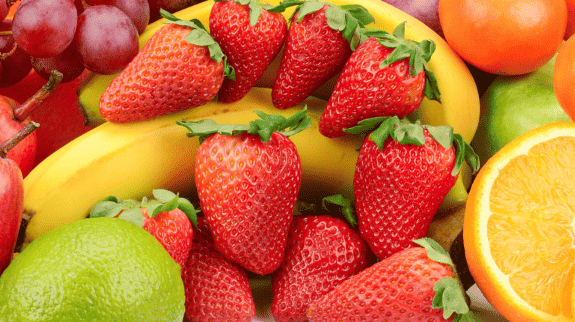Fruits are a great source of nutrients and vitamins that are essential for a healthy diet. However, some fruits are high in carbs and calories, which can be a concern for those following a low-carb or low-calorie diet. Fortunately, there are plenty of fruits low in carbs and calories, making them a great addition to any healthy diet.
Low Carb Fruits include berries such as strawberries, raspberries, and blackberries. These fruits are not only low in carbs but also high in fiber, making them a great addition to any diet. Other low carb fruits include avocados, tomatoes, and olives. These fruits are not only low in carbs but also high in healthy fats, making them a great addition to any diet.
KEY TAKEAWAYS
- Fruits are a great source of nutrients, but some are high in carbs and calories.
- Understanding carbs and calories in fruits is important for maintaining a healthy diet.
- Low carb fruits such as berries, avocados, and tomatoes are a great addition to any diet..
Understanding Carbs and Calories in Fruits

When it comes to maintaining a healthy diet, understanding the nutritional value of the food you eat is crucial. Fruits are an excellent source of vitamins and minerals, but some fruits are high in carbs and calories, which can make it difficult to incorporate them into a low-carb diet.
Carbohydrates are the main source of energy for the body. They are found in many foods, including fruits. However, not all carbs are created equal. Some carbs, such as those found in fruits, are complex carbs that take longer to digest and provide sustained energy. Other carbs, such as those found in processed foods, are simple carbs that are quickly digested and can cause spikes in blood sugar levels.
Calories, on the other hand, are a measure of the energy content of food. Fruits are generally low in calories, but some fruits are higher in calories than others. For example, a cup of grapes contains around 62 calories, while a cup of cherries contains around 87 calories.
Also read: Do Fruit Calories Count?
When it comes to choosing fruits that are low in carbs and calories, it’s important to consider the glycemic index (GI) of the fruit. The GI is a measure of how quickly a food raises blood sugar levels. Fruits with a low GI are less likely to cause spikes in blood sugar levels and are therefore a better choice for people following a low-carb diet.
Some examples of low-carb and low-calorie fruits include:
| Category | Fruit | Carbs (per cup) | Calories (per cup) |
|---|---|---|---|
| Berries | Strawberries | 7 grams | 49 calories |
| Berries | Raspberries | 15 grams | 64 calories |
| Citrus | Oranges | 21 grams | 62 calories |
| Citrus | Grapefruits | 17 grams | 52 calories |
| Melons | Watermelon | 11 grams | 46 calories |
| Melons | Cantaloupe | 13 grams | 54 calories |
| Avocado | Avocado (medium) | 12 grams | 234 calories |
| Stone Fruits | Peaches | 15 grams | 60 calories |
| Stone Fruits | Plums | 16 grams | 46 calories |
| Tropical Fruits | Pineapple | 21 grams | 82 calories |
| Tropical Fruits | Mango | 25 grams | 150 calories |
- Berries: Berries are some of the lowest-carb fruits available. For example, a cup of strawberries contains only around 7 grams of carbs, while a cup of raspberries contains around 15 grams of carbs.
- Melons: Melons, such as watermelon and cantaloupe, are low in carbs and calories. For example, a cup of diced watermelon contains around 11 grams of carbs and 46 calories.
- Avocado: While technically a fruit, avocado is low in carbs and high in healthy fats. A medium avocado contains around 12 grams of carbs and 234 calories.
By incorporating these low-carb and low-calorie fruits into their diet, people can enjoy the health benefits of fruit without compromising their low-carb goals.
Balancing Fruit Intake with Dietary Goals

When it comes to incorporating fruits into a low-carb and low-calorie diet, it’s important to strike a balance between dietary goals and fruit intake. While fruits are a great source of vitamins, minerals, and fiber, some fruits can be high in sugar and calories.
One way to balance fruit intake with dietary goals is to choose fruits that are lower in carbs and calories. For example, berries such fresh fruits such as strawberries, raspberries, and blueberries are great options as they are low in carbs and high in fiber. In fact, a cup of strawberries contains only 49 calories and 7 grams of carbs, with 3 grams of fiber.
Another way to balance fruit and carbohydrate intake, is to watch portion sizes. While fruits are healthy, they still contain natural sugars that can add up quickly. For example, a medium-sized apple contains around 95 calories and 25 grams of carbs, with 4 grams of fiber. However, cutting the apple into smaller slices can make it easier to control portion sizes and still enjoy the health benefits of fruit.
It’s also important to consider individual dietary goals and needs. For those following a strict low-carb or ketogenic diet, fruits such as watermelon and bananas may not be the best options as they are higher in carbs. However, for those following a more moderate low-carb diet, these fruits can still be enjoyed in moderation.
Overall, balancing fruit intake with dietary goals is achievable with careful consideration of portion sizes and fruit choices. By incorporating low-carb and low-calorie fruits into a healthy diet, individuals can reap the benefits of a well-rounded diet while still achieving their dietary goals.
Health Benefits of Low Carb and Low Calorie Fruits

Low carb vegetables and low calorie fruits offer a variety of health benefits. Here are a few reasons why you should consider incorporating them into your diet:
Weight Management
Low carb and low calorie fruits can be a great addition to a weight loss plan. They are nutrient-dense, which means they provide a lot of vitamins and minerals for relatively few calories. This can help you feel full and satisfied without overeating. Some examples of a low carb snack and calorie fruits include apples, berries, and watermelon.
Lower Risk of Chronic Disease
Low carb and low calorie fruits are also associated with a lower risk of chronic disease. Many fruits are rich in antioxidants, which can help protect your cells from damage caused by free radicals. This can help lower your risk of heart disease, cancer, and other chronic conditions. Some examples of antioxidant-rich fruits include blueberries, raspberries, and strawberries.
Improved Digestion
Low carb and low calorie fruits are also a good source of fiber, which is important for digestive health. Fiber can help regulate bowel movements, prevent constipation, and promote the growth of healthy gut bacteria. Some examples of high fiber fruits include avocado, blackberries, and kiwi.
Better Blood Sugar Control
Low carb and low calorie fruits can also help regulate blood sugar levels. Fruits that are of relatively low carbohydrate content or in sugar and high in fiber, such as berries and apples, can help prevent blood sugar spikes and crashes. This can be especially beneficial for people with type 2 diabetes or insulin resistance.
Overall, incorporating low carb and low calorie fruits into your diet can provide a variety of health benefits. Whether you are looking to manage your weight, reduce your risk of chronic disease, improve your digestion, or regulate your blood sugar levels, there is a fruit out there that can help.
Conclusion

In conclusion, there are many fruits that are low in carbs and calories, making them a great choice for those looking to maintain a healthy diet or lose weight. Some of the best low-carb and low-calorie fruits include:
- Berries: Strawberries, raspberries, blackberries, and blueberries are all great choices. They are high in fiber, antioxidants, and vitamins, and are low in both carbs and calories.
- Melons: Watermelon, cantaloupe, and honeydew are all low in carbs and calories and are a great way to satisfy your sweet tooth.
- Citrus fruits: Oranges, grapefruits, and lemons are all great sources of vitamin C and are low in calories and carbs.
- Apples: Apples are a great source of fiber and are low in calories and carbs. They are also a good source of antioxidants.
It is important to note that while fruit is a healthy addition to any diet, it should be consumed in moderation. Some fruits, such as bananas, grapes, and mangoes, are higher in carbs and calories than other fruits and should be eaten in smaller quantities.
Overall, incorporating a variety of low-carb and low-calorie fruits into your diet can help you maintain a healthy weight and provide your body with the nutrients it needs to function at its best.
Frequently Asked Questions

What are some low-carb fruits that are good for weight loss?
Some low-carb fruits that are good for weight loss include strawberries, raspberries, blackberries, and blueberries. These fruits are high in fiber and antioxidants, which can help keep you feeling full and satisfied while also providing important nutrients.
What are some high-carb fruits and vegetables to avoid?
Some high-carb fruits and vegetables to avoid include bananas, grapes, mangoes, and potatoes. These foods are higher in carbohydrates and can potentially spike blood sugar levels, making it more difficult to lose weight or maintain a healthy weight.
What are some of the best low-carb fruits for a keto diet?
Some of the best low-carb fruits for a keto diet include avocados, olives, tomatoes, and lemons. These fruits are low in carbohydrates and high in healthy fats, making them a great addition to a ketogenic diet.
Which fruits are the lowest in both sugar and carbs?
Some fruits that are low in both sugar and carbs include strawberries, raspberries, blackberries, and cranberries. These fruits are also high in fiber and antioxidants, making them a great choice for anyone looking fresh fruit to maintain a healthy diet.
Can you eat any fruit while on a low-carb diet?
Yes, you can eat fruit while on a low-carb diet, but it is important to choose fruits that are lower in carbohydrates and sugar. Some good low carb breakfast options include berries, avocados, and tomatoes.
What are some healthy low-carb snacks that include fruits?
Some healthy low-carb snacks that include fruits include apple slices with almond butter, celery sticks with cream cheese and blueberries, and cucumber slices with guacamole. These snacks are all low in carbohydrates and high in nutrients, making them a great choice for anyone looking to maintain a healthy diet.

